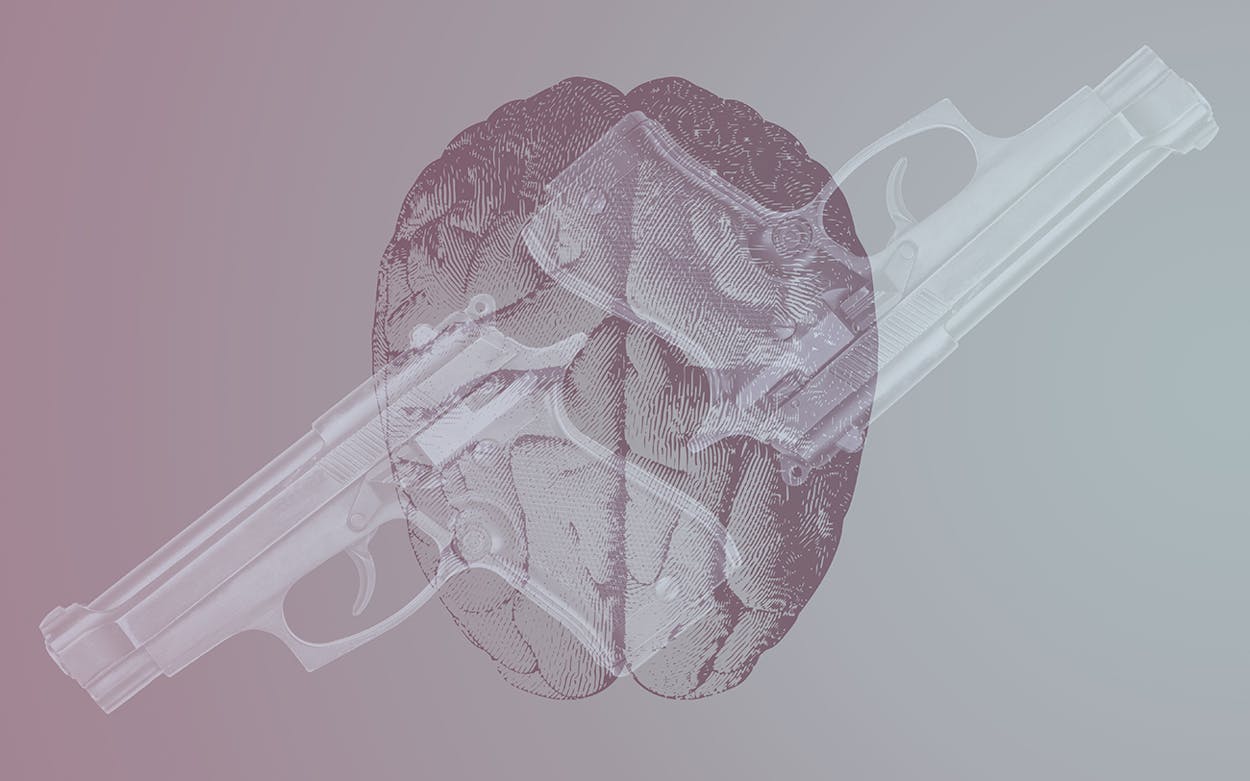In the aftermath of the largest mass shooting in modern U.S. history, words like “demented,” “insane,” “sick,” and “madman” peppered official responses, media coverage, and public speculation. How else could we explain the tragedy in Las Vegas? But such loaded language obscures a simple fact: The majority of mass shooters do not have a diagnosed mental illness. More of us need to realize that it is wrong to automatically assume that mass shootings and mental illness go hand in hand.
We often put mass shooters—particularly when they are white—under the umbrella category of mental illness. Possible diagnoses are mulled over by the media, hinted at by those who knew the perpetrators, or simply assumed. But this fallback on mental illness, or other disability labels, flies in the face of data about mass shootings. Less than 25 percent of the perpetrators of modern mass shootings have had a diagnosed mental illness.
Still, mental illness remains one of the primary explanations after these types of tragedies because it fits our cultural script. Whether or not it is a factor in specific massacres, mental illness is central to how we as a society now interpret mass shootings. In our private lives, a diagnosis of a mental illness can bring a sense of logic to the senselessness. It makes symptoms suddenly intelligible, and can sometimes offer opportunities to bring it under control. Similarly, the assumption that mental illness is a reliable factor in mass shootings helps society create a sense of logic in the face of unspeakable—and very public—tragedy. We try to understand the situation in order to gain some sense of control, however vague and amorphous. It becomes both an isolated tragedy and another piece of a growing line of similar stories. We attempt to rein it in by giving it a name.
But our reliance on this myth helps nothing. We know this, in part, because active shooter incidents have increased significantly since 2000. We have seen the images and, for better or for worse, now have unprecedented access to audio and video footage of these events as they unfold. Yet we do not understand any more than we ever did. The assumed, yet unsupported, link between mental illness and mass shootings is perhaps doing more harm than good.
The mentally ill mass shooter is far more real in our collective imagination and fears than in real life. This is not to say that mass shooters are typical or even rational—clearly, most of us would never dream of committing such an act. However, relying on assumptions of mental illness as an explanation not only stigmatizes individuals who struggle with mental health, it also obscures the complexity of mass shootings as a relatively new phenomenon in the U.S. There is certainly more to this puzzle.
Commentators and experts point out the arbitrariness of focusing on mental illness when other factors, notably male gender, are much more strongly correlated with becoming a mass shooter. And yet something about it resonates. As we have seen in recent years, non-white perpetrators are far more likely to be discussed in the parlance of terror, with keywords such as “radicalization” emerging from the start. Yet almost immediately after the shooting in Las Vegas, officials were quick to declare that it was not terrorism. The cultural script of terrorism did not fit—not for a white shooter.
We as a society remain fixated on medical explanations for everyday life. They give us a sense of trust and comfort. We want a diagnosis to explain difference and, ultimately, horror. But this is shortsighted. The question is not necessarily whether mental illness is a factor, but rather why it continues to be the de facto first step. Mass shootings have become far too normal in part because we have allowed them to enter our social worlds. We simply have relied far too long on the scapegoat of mental illness.
Elizabeth Lewis is the project manager for the Texas Center for Disability Studies at The University of Texas at Austin. Opinions expressed by Texas Monthly guest columnists are their own.






